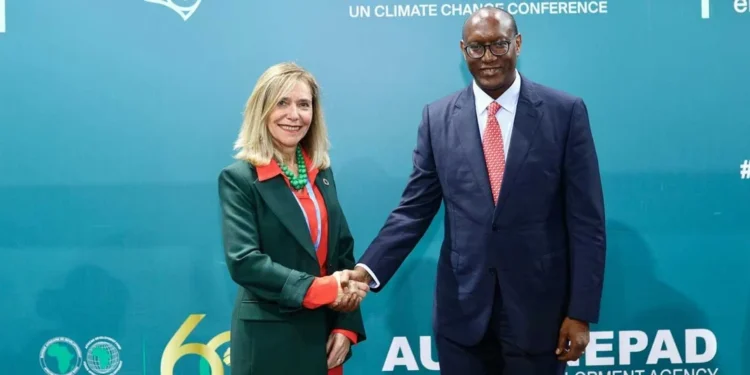The African Development Bank (AfDB) and the Systematic Observations Financing Mechanism (SOFF) have signed a key agreement to strengthen early warning systems in Africa’s most vulnerable countries. Officially endorsed during COP29 in Baku, the pact promises a direct impact on communities by ensuring a faster and more effective response to climate threats.
Africa: African leaders “demand” to monetize their green capital
Early warning systems, essential for mitigating disasters such as floods and droughts, have been limited by the lack of meteorological data in Africa. With only a 4% compliance rate in surface observations, according to the World Meteorological Organization (WMO), millions of people remain exposed to the effects of climate change. The collaboration between AfDB and SOFF aims to close these critical gaps, ensuring that the most vulnerable communities receive accurate and timely alerts.
This effort will have a significant impact on the safety and well-being of populations. With better weather forecasts, governments will be able to prevent human tragedies and minimize economic losses. The $62 million already committed by SOFF for 23 African countries represents a step forward towards more robust systems and better-prepared communities.
The AfDB’s Climate Action Window, which has mobilized $321.8 million, amplifies this initiative by prioritizing investments in technical capacity and local resources. This integrated approach includes joint workshops and continuous support for national meteorological services, cementing climate resilience at the grassroots level.
The AfDB-SOFF partnership demonstrates the power of collaboration to transform lives in Africa. Beyond the data, this alliance strengthens nations’ capacity to protect their citizens, highlighting the continent’s commitment to a safer, more resilient, and equitable future.









